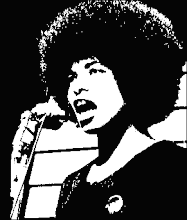Yesterday presidential candidate John McCain decided to pull his campaign and request a postponement of the first presidential debate this Friday in order to return to Washington and aid Congress in developing a different plan than Bush's bailout plan. Whether this is a sincere attempt at unifying leadership or a move to gain favor in the polls- I will not discuss. I will however present it forward as an excellent way to look at how a dominant group has, not only, ideological control but through that ideological control affects concrete factors of everyday life (i.e. in one way or another shift the economic workings of the United States and further the lower and middle classes will be shaken, rattled, and rolled). How is this a manifestation of ideology? There is Dr. Craig's example of the impression we receive from the media about stock market's gains and loses. "This will be covered in the media as a universal and unqualified positive sign for all, even though it means that more people are working longer and harder for less pay, not only in absolute terms, but especially in relative terms" (Dr. Craig's post on Marxist criticism and ideology). Currently, President George Bush is using this kind of ideology of universality by suggesting the bailout plan and also playing on a familiar ideology of choice. American culture thrives on giving people 'individuality' and 'freedom' because it then allows for a dominant ideology to expand (as Dr. Craig suggested-"one function of ruling class ideology is to assure the complacency of the working classes, in order to also assure the power and dominance of the ruling class"). Let me note- Swing Vote is not how our electoral system works. By suggesting that the market needs the support of the American people - more concretely their tax money- for the betterment of the United States economy there is a sense of 'duty' being imposed. (Now, supposing that no executives get the 'golden parachute' on their way and the bailout plan is approved- who is to say it will all work? That is really another discussion).
Now, the interesting point to note is the media's 'reactionary' messages. All of a sudden there is a major influx of ads (from DividedWeFail.org, we.org, etc.) which promote and somehow suggest that each citizen has the control to make the ultimate difference in our countries dependence on oil, in the effects of global warming, and even in our economic recession (yes its true- recession). The most interesting part about these ads (and how it relates to marxist critical reading) is the final words in the ads. Many end with something along the lines of: "We're not asking, we're demanding' or 'this message is approved by the American people.' The way they play with language suggest that we- the masses- have control. This is clearly not true in the purest sense but it is a way to keep the masses happy. Just as allowing a Che Guevara shirt be worn to give people the impression they are making a rebellious statement when in reality its rather meaningless now; and certainly if Che saw someone with that shirt on odds are he would be absolutely disgusted and infuriated. Keeping the masses happy with this superficial transference of power and 'our approval' of a message makes it easy for the ideology that our 'democratic' rights work in conjunction with the functioning of the republic to be ingrained.
Further- I would like to point out the role of citizens consciously and unconsciously accepting their subjugation. Those who unconsciously accept their subjugation are people who consume all media formats and somehow messages subjectively and in some forms accept them to be absolute. Those who consciously accept their subjugation are the disappointed idealists (G. Carlin) of the world; the cynics who see all of these manifestations of ideology as exactly that by placing an objectivity towards the base and superstructure and their 'real' role in them, but only in thought and not in action. You tell me which kind of subject I am.
Peace,
Priscilla
Note: entitled "Good Timing..." because it is a very poignant time to be able to apply Marxist critical theory but obviously there is not much 'good' at this time, economically speaking.
Final Post
17 years ago
